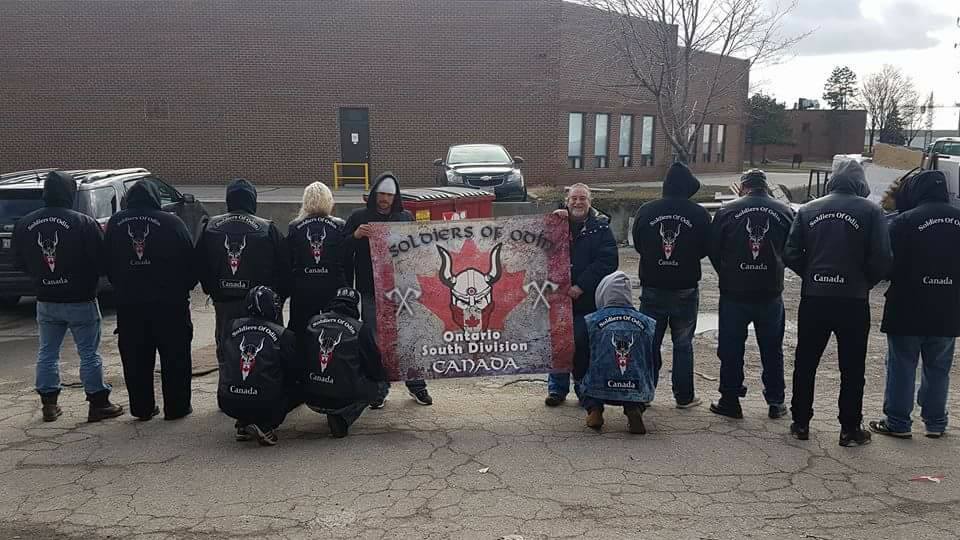When radicalization is publicly discussed in Canada, it is almost always with a reference to Islamic extremism or terrorism. It’s as if this phenomenon is strictly confined to individuals who have adopted extremist Islamist ideas like those of ISIS. Yet, this narrow conception of radicalization has, without a doubt, allowed for the atrocities in the Quebec City mosque to take place.
By failing to acknowledge the threat coming from the radicalization of individuals and the presence of more than 100 right-wing groups throughout Canada, we have blinded ourselves to the possibility of something like this ever happening.
There is no question that Islamic radicalization and violence is a threat that must be addressed in Canada. Governments at all levels have mobilized to address the risk posed by international Islamic extremist groups, and the academic study of the phenomenon has exploded.
However, the way Canadian society has addressed radicalization in these past few years has neglected this other source of radicalized individuals: the ones who claim supremacist, nationalistic and/or far-right values.
Apart from a few researchers, many Canadian academics have very rarely addressed this phenomenon. With the rise of the right-wing parties in Europe and Trump’s declarations regarding Muslim immigrants, it was foolish to think radicalization only concerned extremist religious ideas. Now, with this most recent act of hatred, will we finally acknowledge the problem?
Some did try to warn us. James Ellis and Richard Parent from the Canadian Network for Research on Terrorism, Security and Society previously observed that Canada was not immune to the rise of far-right extremism. In their research, they identified a potential risk for greater acts of violence coming from such groups and individuals. Indeed, their research shows that incidents have been steadily rising from 2003. These acts have included arson, property damage, harassment, killings and now mass murder.
If these attacks continue to occur, then certainly something ought to be done. Researchers Barbara Perry and Ryan Scrivens from Simon Fraser University pointed out in February 2016, that the Canadian government should do far better at tracking right-wing extremists. “Over [in Europe and the U.S.] they own it, we don’t. We think we’re this perfect multicultural country but we aren’t,” he said. “We don’t see the same flare-ups because we don’t have the population sizes, but it’s still there.”
Indeed, in 2015, Sylvain Guertin from the Sûreté du Québec’s Division of Investigation on Extremist Threats stated in a report for the Standing Senate on National Security and Defence, that “The majority of the service’s active files deal with the extreme right and, for 25 per cent of the files, with hate crimes” (italics added). The same report also attributed slightly less than 25 per cent of the active files to Islamic radicalization.
Given the availability of such data, it’s curious why more Canadians aren’t aware of the risks coming from right-wing radicalization. Likely, this can be attributed to the Canadian media’s lurid fixation on Muslim extremist violence.
“We see the right-wing extremism movement rear its ugly head once and a while, but it just doesn’t really gain the same traction as Islamic extremists,” Scrivens said of the coverage. However, once you start digging you can find many articles relating to Canadian groups such as Neo-Nazis, the Aryan Guard and Blood and Honour.
Quebec also has its own brand new group called La Meute, “The Wolf Pack” in French. This nonviolent “moderate” right-wing group sees itself as the sole bastion against the spread of Islamism in Quebec. They perpetuate the idea that an invasion of pro-Sharia radical Islamist supporters is imminent and will jeopardize Quebec society. This group and others like it are gaining supporters at an alarming rate: La Meute attracted more than 43,000 new social media followers in just over a year.
Despite this, most Canadians still believe that the national radicalization problem is mostly confined to religious (Islamist) ideas. Released last October, Sherpa’s new report on youth radicalization in Quebec’s CEGEPs completely deconstructs this idea. In Sherpa’s results, contrary to popular perception, it was revealed that the propensity to radicalize is greater if a person is not religious. In addition, recent immigrants are far less likely to radicalize than non-immigrants or second-generation immigrants.
Islamist extremism has to be addressed, but not to the detriment of ignoring a broader trend of radicalization and violence. By focusing on preventing and monitoring mainly religious extremism, we have failed to track the dangers of radicalized individuals and groups such as La Meute, or the more radical Blood and Honour.
Clearly, the government must do its part by monitoring all kinds of radicalized individuals, but society at large also has a role to play. We must ask ourselves if we will once again fall prey to societal fears and misconceptions or if we will demand a greater accountability from our media. We must stand against hate speech and fear mongering, and denounce and oppose xenophobic rhetoric.
It is the responsibility of Canadian citizens, the media, academics and the government to ground the debate and ensure that we address the threat of extremist violence in a rational way. We need to acknowledge that in this polarized era, all individuals, not only religious ones, can be radicalized towards committing acts of violence.
Caroline Biotteau is a research analyst with Canadians for Justice and Peace in the Middle East (CJPME.) She holds a Bachelor’s degree in International Studies from the Université de Montréal, has studied at the Political Science Department at Stellenbosch University in South Africa, and has participated in The Washington Center, in Washington, D.C.
Please chip in to keep stories like these coming.
Image: Facebook/Soldiers of Odin




